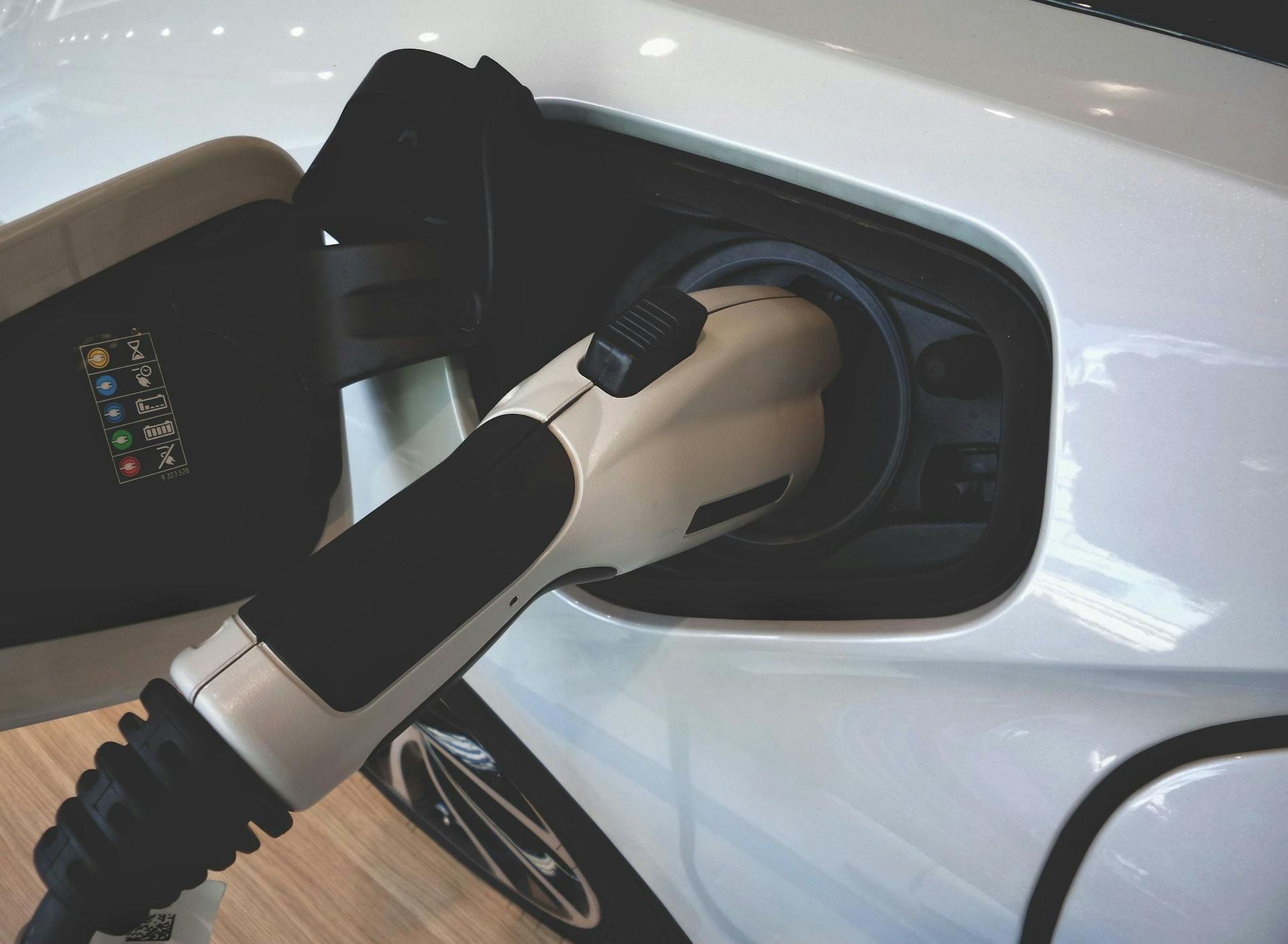Published date: October 19, 2022
Why does the voltage of my car’s battery matter for charging?
Why does the voltage of my car’s battery matter for charging?
We all want to charge fast. Below are some pros and cons of having a higher voltage in your EV's battery.

What voltage does my electric vehicle battery have?
Each electric car has a battery of a different voltage, but most often, battery packs are between 400 and 800 volts (V). There have been a lot of discussions lately about battery voltage, and EV experts have been debating the differences between 400V and 800V battery packs.
Expensive EVs have been adding 800V battery packs mostly to improve Level 3 direct current (DC) fast charging times.
What are the main ways to charge faster?
There are two ways to feed a lot of power to the car.
- The first way is to feed a lot of current (amps) to the car. Remember the equation: power = current^2 * resistance or
P(w) = I(A)^2 * R
However, this is typically inefficient. For as the amount of current increases, there are more losses.
- Second way is to increase the voltage, or use a higher voltage charger. Increasing the amount of voltage reduces the amount of current needed, which reduces losses.
How does voltage impact charging times?
It is important to note that voltage is dynamic and changes during different charging states of the battery, especially during Level 3 charging. When an EV is plugged into a powerful Level 3 DC charger, it requests a certain number of amps from the charger.
Remember the formula for EV charging:
I(A) = (P(kW) * 1000) / V(V)
or
P(kW) = (I(A) * V(V)) / 1000
If the car is requesting a certain number of amps from the Level 3 DC charger, then the number of volts is another contributing factor to how many kW your car’s battery will accept.
Does battery voltage impact Level 2 AC charging times?
Yes! Voltage impacts Level 2 charging times. Level 2 charging increases the amount of voltage from 110 or 120 (of regular outlet for Level 1 charging) to 208 or 240 volts, and also allows for higher amp chargers to be installed.
- Level 1 charging: 110V or 120V
- Level 2 charging: 208V or 240V
What are the voltages of popular cars made by Tesla, Rivian, Ford, Hyundai, GM, Lucid, BMW, Mercedes, Genesis, Kia, Porsche, etc.?
Note, that the list of battery pack voltages below is taken from estimates in recent reports. Actual voltage varies a bit by make and model.
~900V battery pack
- Lucid Air (Source: Lucid)
800V battery pack
- Hyundai Ioniq 5 (Source: Hyundai)
- Genesis GV60 (Source: Genesis)
- Kia EV6 (Source: Kia)
- Porsche Taycan (Source: Porsche)
- Cadillac Lyriq (400V option available as well. Source: TechCrunch)
- Hummer EV (Dual 400V/800V battery pack system. Source: GMC)
450V battery pack
400V battery pack
- Tesla Model S (Source: Tesla)
- Tesla Model Y (Source: Tesla)
- Rivian (800V models forthcoming. Source: chargedevs.com)
- BMW iX (Source: Inside Evs)
- Mercedes EQS (Source: Autoevolution)
OEMs are continuing to innovate to reduce costs and improve charging times.
Lectrium upgrades dealership EV detail pages with impactful data and visuals for shoppers considering electric.
The EV Savings Badge: Join 300+ dealerships across the U.S. showcasing EV ownership savings on their website. Highlight federal and state tax credits, fuel cost savings, and maintenance savings for each EV and PHEV in your inventory.
The EV Range Map: Join 200+ dealerships addressing range anxiety by helping their customers visualize the range of each EV and PHEV inventory on an interactive map.
The CO2 Savings Badge: Our newest tool showcases the environmental impact of your electric inventory, providing easy-to-understand CO2 emissions savings data.
Enable shoppers to make informed purchasing decisions, and emphasize the value of your EV and PHEV inventory by bundling these tools on your website. Book a meeting with our team to get a full demo.
Subscribe to our EV newsletter for dealers
Join 9,000+ other automotive professionals diving into EVs and streamlining their EV sales processes!
Follow Lectrium‘s latest news on LinkedIn
2024 Lectrium. All Rights Reserved


